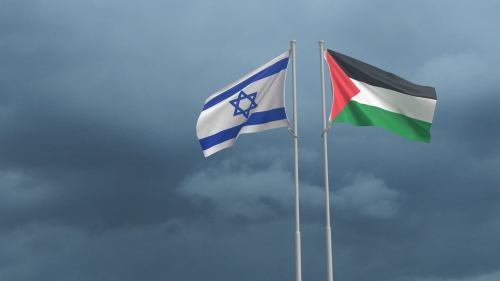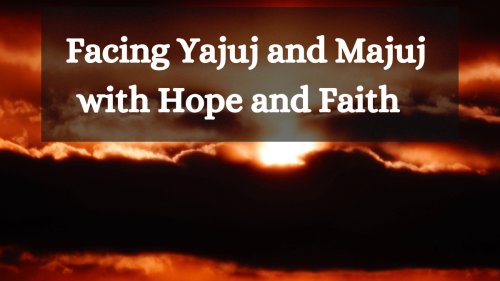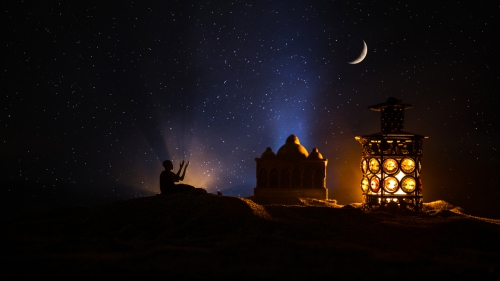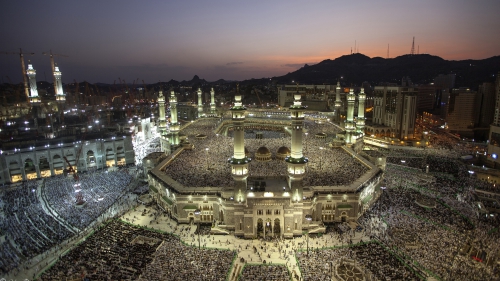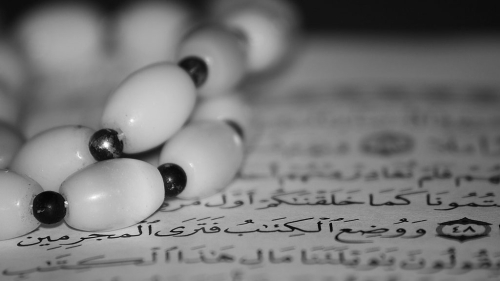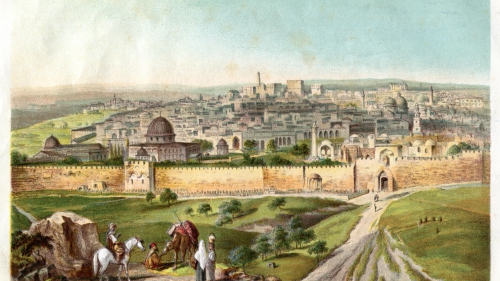Ayah al-Kursi for Christians, Jews, and Muslims

Almost 2,000 years ago a Jewish man in Jerusalem, a teacher of the Torah of Moses (a scribe or a Rabbi) was impressed to see Jesus answering the questions of hypocrites with wisdom. He asked Prophet Jesus a question: "Which of the hundreds of commandments in the Torah is the most import important one to do?"
Prophet Jesus replied, according to the Gospel of Mark, by quoting the Torah itself not once but twice: “One of the teachers of the Torah came and heard them debating. Noticing that Jesus had given them a good answer, he asked him, “Of all the commandments, which is the most important?”
“The most important one,” answered Jesus, “is this: ‘Hear, O Israel: The Lord our God, the Lord is One. Love the Lord your God with all your heart, with all your soul, with all your mind, and with all your strength.’ (Torah Deuteronomy 6:4-5) The second is this: ‘Love your neighbor as yourself.’ (Torah Leviticus 19:18) There is no commandment greater than these (two).”
“Well said rabbi,” the man replied. “You are right in saying that God is one and there is no other but him. To love him with all your heart, with all your understanding and with all your strength, and to love your neighbor as yourself is more important than (all the ritual) burnt offerings and sacrifices.”
“When Jesus saw that he (the rabbi) had answered wisely, he said to him, “You are not far from the kingdom of God.” And from then on no one dared ask him (Prophet Jesus) any more questions. (Mark 12:28-34)
There are many significant lessons in this narrative: First, Jesus did not say he was the Son of God, or a Savior sent to redeem mankind of its sins. He did not say anything remotely similar to what people are instructed to repeat to be ‘born again’ in Christ; "accept me as the Son of God, your personal Lord and Savior who will die on the cross for your sins and will rise from the dead." So follow what Jesus said and ignore what people added later.
Second, salvation depends on commitment to these two commandments. Jesus confirmed there is no commandment greater than these. In case someone might think these two greatest commandments changed afterwards, Prophet Jesus told us: "For assuredly, I say to you, until the heavens and earth pass away, not one letter will by any means pass away from the Torah until all is fulfilled. So whoever breaks one of the least of these commandments, and teaches men (to do) so, shall be called least in the kingdom of heaven; but whoever does and teaches them, shall be called great in the kingdom of heaven.” (Matthew 5:17-19)
Third, anyone who loves Jesus and wants to enter a holy spiritual life must keep at least the two greatest commandments of Prophet Jesus: "If you love me, keep my commandments.” (John 14:15) and "If you want to enter (live a holy) life, obey the commandments.” (Matthew 19:17) and always remember what Prophet Isaiah said: “I, even I, am your Lord; and besides Me there is no Savior.” (43:11)
Even Paul, who turned Prophet Jesus into a Christian Son of God, admits in his letter to the Roman church: “For the (ten) commandments, “You shall not commit adultery, You shall not murder, You shall not steal, You shall not covet,” and all other commandments, are summed up in this commandment: “You shall love your neighbor as yourself.” Love does no wrong to a neighbor; therefore love is the fulfilling of the Torah. (New Testament Romans 13:9-10)
I sometimes wonder if Prophet Muhammad had been asked the same question by a rabbi in Medina almost 600 years later, what would he have said? Only God knows the answer, and all Muslim scholars would say that there is no “best” Ayah in the Quran because all of them come equally from the same source; but there is one often considered the most powerful: Ayetel Kursi.
"Allah: there is no true God but Him. The Ever-Living, the Eternal Master of all. Neither drowsiness nor sleep overtakes Him. His is all that is in the heavens and all that is on earth. Who is there that can intercede with Him, except by His permission? He knows all that lies open before them and all that lies hidden from them; whereas they cannot attain to anything of His knowledge save as He wills. His Kursi extends over the heavens and the earth, and the preservation of both does not tire Him. He is the Most High, the Most Great." (Quran 2:255)
Known in Arabic as Ayah al-Kursi, this verse is known for its profound meaning, its inspiring and comforting message, and its magnificent description of God’s powers and attributes. The verse summarizes those attributes of Allah’s names that most aptly assert the meaning of the basic Islamic principle of Tawhid: the oneness of God. As Prophet Muhammad said, "Everything has its pinnacle and the pinnacle of the Quran is Surah al-Baqarah. In it there is a verse which is the greatest in the Quran." (Tirmidhi)
Being the greatest verse of the Quran, Muslims are encouraged to recite it regularly. The Prophet said that one who recites this verse after every prayer, and following an obligatory prayer; is under the care and protection of God until the commencement of the next prayer.; (Nasai) and reciting Ayah al-Kursi will protect you, your children, and your house. (Bukhari)
As a Rabbi I can state that this powerful verse clearly confirms the teachings of the Jewish Prophets in the Hebrew Bible, as the Qur’an itself states: “There is no god except He; the Living, the Eternal. He sent down to you this scripture (the Qur’an), truthfully confirming all previous scriptures, and He sent down the Torah and the Gospel before that, to guide the people (Jews and Christians), and He sent down the statute book. Those who disbelieve in GOD's revelations incur severe retribution. GOD is Almighty, Avenger.” (3:2-4)
I offer a few verses from the Hebrew Bible that reflect the closeness of the two scriptures. "Allah: there is no true God but Him.” As Prophet Isaiah said: "I even, I am your Lord and besides Me, there is no Savior.” (43:11) and Prophet Hosea proclaimed: "I am the Lord your God who brought you out of the Egypt. You shall acknowledge no God but me, no savior except me.” (13:4)
"The Ever-Living, the Eternal Master of all.” God sustains everyone and everything. The Eternal One, who has no beginning and who will have no end. This corrects the erroneous idea of God ‘resting’ on the seventh day after creating the universe, ‘on the seventh day God ended his work which He made. And God blessed the seventh day and sanctified it: because that in it He had rested from all His work which God created and made’ (Torah Genesis 2: 2-3)
This is correct for the Hebrew word Shabbat does not mean to rest due to weariness; it means to pause or cease activity in order to appreciate and evaluate the goodness of one’s activities. As Allah told Prophet Musa: If one recites it (Ayah al-Kursi) after every salat, the Almighty will make his heart an appreciative one (Shakireen), will give him a reward of the prophets, and his deeds will be like those of the truthful (Siddiqeen, in Hebrew Tsadeekim).
"Neither slumber nor sleep overtakes Him.” As Prophet David wrote in the Zabur (Psalm 121:3-4) “He will not allow your foot to be moved: He that guards you will not slumber. Behold, he that guards Israel shall neither slumber nor sleep.”
"His is all that is in the heavens and all that is on earth.” As Prophet David wrote in the Zabur (Psalm 115:15) "May you be blessed of the LORD, Maker of heaven and earth.” and (Psalm 121:2) and “My help comes from the LORD, Who made heaven and earth.” and (Psalm 124:8) "Our help is in the name of the LORD, Who made heaven and earth."
In the light of all these verses from the Zabur of Prophet David I can see why “reciting Ayah al-Kursi will protect you, your children, and your house.” (Bukhari) For “Everything in the heavens and earth entreats Him for their need. Everyday He attends to some task.” (Quran 55:29)
Rabbi Maller's web site is: www.rabbimaller.com. He blogs in the Times of Israel. His book ‘Judaism and Islam as Synergistic Monotheisms: A Reform Rabbi's Reflections on the Profound Connectedness of Islam and Judaism’ (31 articles by Rabbi Maller previously published by Islamic web sites) is for sale ($15) on Amazon.
Topics: Christianity And Judaism, Interfaith, Quran, Tawhid (Oneness Of God), Torah
Views: 7540
Related Suggestions






